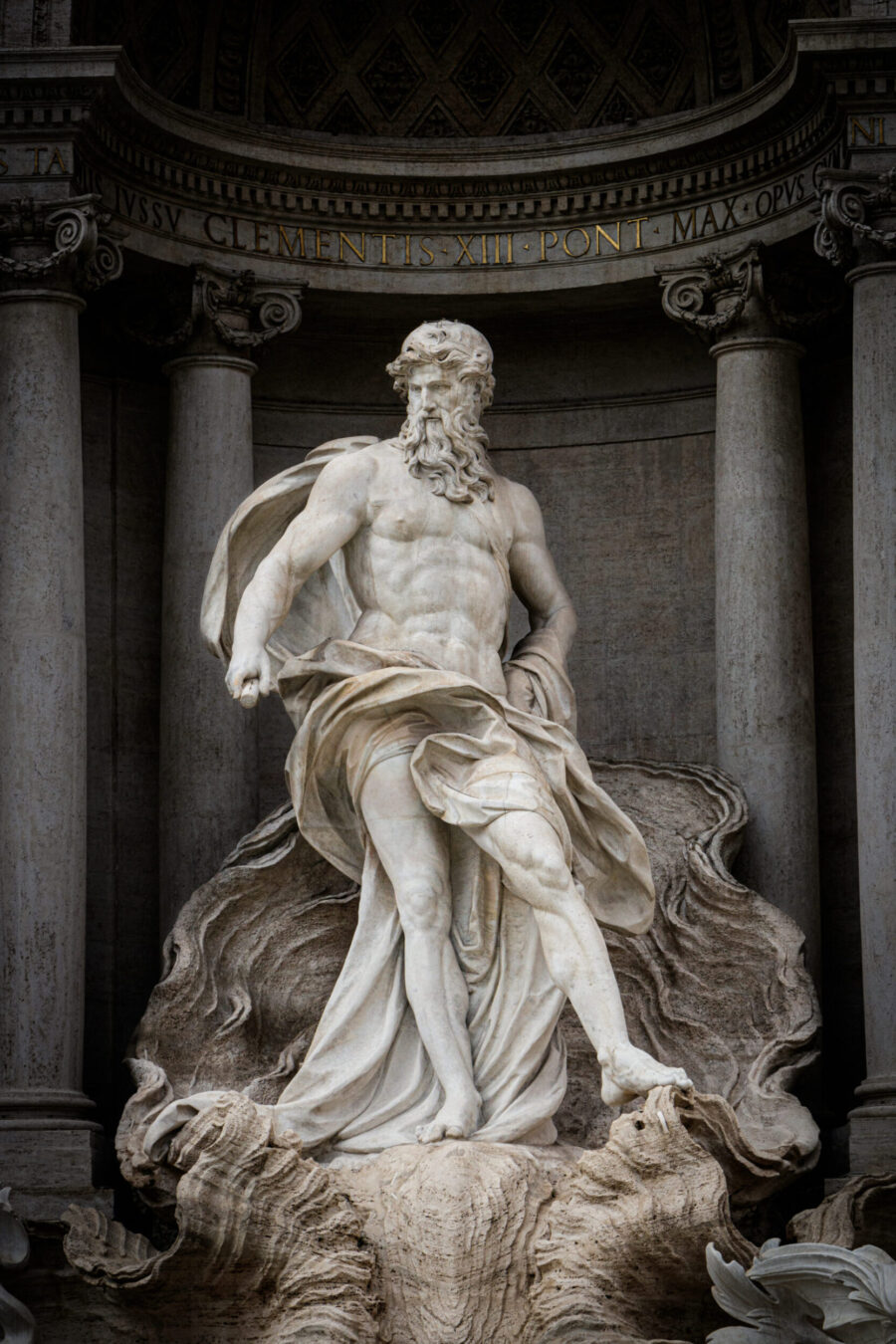
Fontana_di_Trevi_by_TC
Okeanos at the Fontana di Trevi, petrified by tourists. © Tomas Castelazo, www.tomascastelazo.com / Wikimedia Commons
What does language want to tell us?
We all need to express ourselves and this expression is about reality. Language is an attempt to describe a part of reality. If I describe a landscape to someone, the listener of the description can easily imagine the elements of that landscape (for example, trees and hills). If they have an excellent ability to compose internal images, the landscape they construct in their minds from my description may even be a faithful representation of the original landscape. Through this interaction, the listener comes into contact with a reality that none of their senses have ever come into contact with before.
Because language has this aspect of transferring one subjectivity to another, we tend to understand it in terms of its functionality, its capacity as an instrument of communication between people.
But this purely communicative aspect alone points us the way to Okeanos, the celestial sea of the Greek myths, which in its dispersed informality surrounds all the forms of the world. This is also what language is, because in order to communicate even the simplest events, we allow ourselves to be taken over by the vehicle that crosses forms. The small realities of life, in order to be name-able, to be studied, to be communicated, become visible forms through the flow of the word that names them, the sentences that operate a logic of events. Without this vehicle, the world is shapeless and nothing. A self-originated chain of lightning, like the great unifiers of Greek proto-cosmology.
Language, however, is not just a descriptive or communicative tool. It is something more fundamental. And in order to explore what is most fundamental about it, that is, what is in its nature that makes its descriptive capacity possible, let’s try to grasp it in its total expressiveness. There are two aspects to this: the existence of the creating power that produces poetry, and the need to admit that language has its origin in the inexpressible and that its vocation is to say this inexpressible.
The French-Algerian philosopher Jacques Derrida thinks of language as a succession of differences and ‘divergences’ (diffèrance/deferring), noting how the merely descriptive or communicative capacity of language depends on the permanent mutation of linguistic elements into something else. Look at any text, for example this one. What is said is made up of changes that take one letter to another letter, one word to another word, until a meaning emerges, a sense of the text that in the meantime acquires communicative power. Its possibility, however, lies in the non-text, in the unspeakable substrate that language wants to bring to expression.
This is why, in his Margins of Philosophy (1972), Derrida points not to the truth of language, not to its structural torrent of difference, but to the fact that this movement of differentiation itself constitutes the appearance of truth (which he will later call événement, the event). There is no substantial truth that language affirms, but rather the appearance of truth that coincides with the sudden self-originated presence of diffèrance. The unspeakable becomes unspeakable only by being spoken.
With this construction, as if by inertia, of truth, language can be transformed into narratives. It can give shape to a discourse, and only when it gains meaning can it be appropriated into dogma, ideology or opinion.
The poetic text displays this ‘margin’ of the word, of language itself, and of difference better than any other. Poetry advances on us, and reaches us with an impulse that pre-dates the constitution of the word. The poetic text points to the unspeakable, to what has no word to capture it, blossoming before our eyes and our senses in allusions, in symbolic force, in rhythmic games that point to the inaccessible margin of language.
In the beginning was the Word, and at the origin is the logos, from the obscure and all-encompassing Okeanos, magical thought became revelation and philosophy through the word. A system of names and grammar, a language, that offers the expression and reference to reality that is necessary to start seeing it, to start thinking about it, to start the processes of its appropriation.